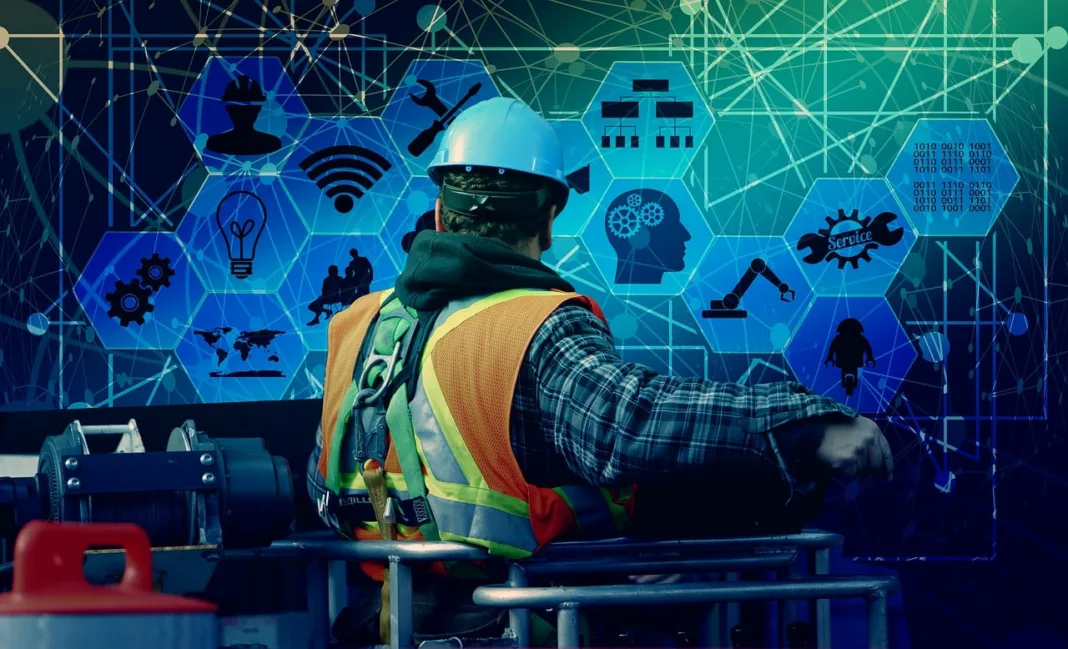
As a provider of digital technology solutions to construction verticals, I’m often asked, “Will I lose my job to AI?” ” How can I implement AI?” ” How will AI benefit my organisation?” and similar questions.
These are natural concerns, but it’s important to understand that AI is neither a threat nor a new trend; it’s just another tool in the digital technology creators toolkit, used by developers to increase value for customers. What we’re seeing now was a long time in the making, accelerated by recent global events like pandemics and climate change. The first generation of PMIS was not equipped to deal with the fallout of such events, but today’s AI-enhanced PMIS is. So, instead of static reports about work status, you’ll get insights about problems that might arise three months down the line, along with recommendations on how to fix them. Instead of dashboards showing manpower status, you’ll be given a list of possible labour shortfalls across disciplines, and you’ll also get a list of similar problems shortfalls and their remedies from your history. It’s like having somebody on the team who knows your industry and your organisation inside out, is constantly scanning for red flags, and has practical ideas about how to solve problems.
The whole point of AI is to make the life of human decision-makers easier.
Will AI be accepted by senior project management?
Yes, without a doubt. Much as with ATMs, AI in project monitoring will be accepted once people see its benefits. ATMs haven’t replaced tellers in banks, they’ve merely added a new dimension – for big transactions, you still need to visit a bank. It’s the same with AI in construction management.
The change has already begun. Most of the industry is already on the digitalisation train, so there’s cautious optimism regarding AI – people are curious but don’t quite understand it. To such people, I would say: think of AI as an additional layer of code (added by developers) on top of the digital system you already use. Invisible to you, but making your life better. If human intelligence defines how you process input collected by your senses, artificial intelligence defines how well a system processes input captured by the monitoring part of the system, with the goal of helping you, the user, make better decisions in the real world. It’s all about processing the data.
Prepare, don’t panic
Take Project planning. Project planning used to be done left to right, i.e., starting with the scope, then engineering, then procurement, then construction. With digital systems, we started planning right to the left, with the construction work package that was to be constructed, then what procurement materials were needed, and then the engineering drawings and documents. The problem was that a human manager still had to ‘guesstimate’ what skills would be required and when and where, and he’d have to use his experience or imagination to anticipate what problems might crop up in the future. AI steps in to remove that piece of the burden. It reduces the infinite combinations and permutations the manager has to consider to a few optimal choices that can be immediately acted on.
Or take another popular AI-driven tool – ChatGPT. A manager who used ChatGPT to draft a letter never goes back to manually writing letters. ChatGPT is a passive tool – an AI-driven digital solution that doesn’t wait to be asked.
Think of it like this. If the project owner is king, the PMIS with an AI engine is like a trusted prime minister who keeps an eye on internal operations as well as the outside world, weather and public mood, and other factors that might impact the work. He comes running to you whenever he spots a problem brewing in the distance – and he also gives you advice on what to do. That’s the power of AI in construction project management – it processes data fast enough and ‘intelligently’ enough to empower decision-making; it helps us be effective in ways we simply couldn’t be otherwise.
A culture that’s Active, Adaptive, and Alert
Over time, AI will create a culture where we’re always aware but not always worried. The system will become smart enough to know a harmless glitch from a real threat and so project management will not mean constant firefighting. We’ll be in a calm working environment where we feel in control of our projects despite the circumstances.
To sum up, AI-enhanced technology in construction is akin to an insurance policy – nobody can predict disaster or avoid it, but everybody can prepare for it, and have more peace of mind.
About the Author
Varghese Daniel, Co-founder & CEO of Wrench Solutions. He is a visionary in the field of information technology, having created SmartProject, the world’s first integrated information platform for construction projects. This innovative platform is utilized by EPC firms globally. With an M.E. in Mechanical Engineering from the National Institute of Technology, Jaipur, his journey began with an idea for collaborative data processing, which led to a successful venture with Kennametal Widia & MICO BOSCH and government funding.





